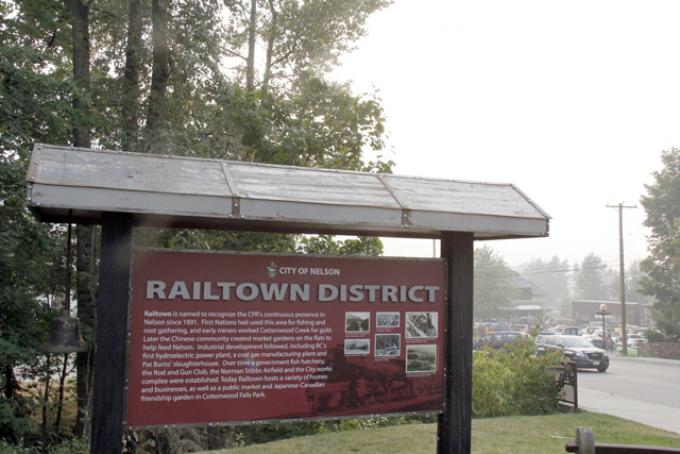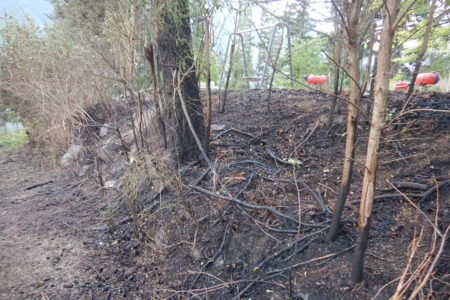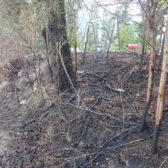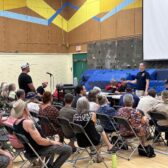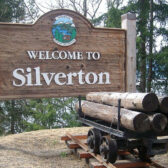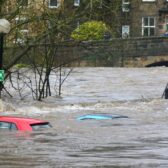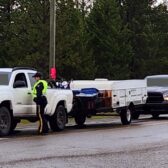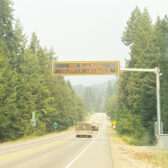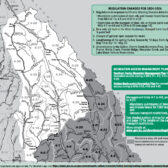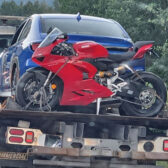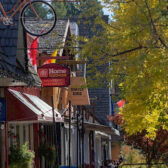City steers clear of 24/7 drive-through food service in Nelson
The city has curbed any late night penchant for rubber tire cuisine in Nelson as it drove over a request by a local restaurant to operate a 24/7 drive-through food service.
With drive-through restaurants not a permitted business endeavour in the city, an A&W outlet in Railtown was able to keep operating as an existing non-conforming business having been “grandfathered” when the bylaw was adopted seven years ago.
However, the franchise recently looked to extend their drive-through operating hours around-the-clock and applied to the city to do so.
To no avail. Council voted unanimously and with no discussion on a Business Licence Bylaw amendment that will restrict operation of drive-through restaurant services to operating later than 11 p.m., and opening no earlier than 5 a.m. “to protect future residents.”
Prior to this there was no restriction in the city which would prohibit an existing drive-through restaurant from operating 24 hours a day.
In 2013, it was city council’s decision to restrict drive-through restaurants as a permitted use in the Zoning Bylaw.
“The intent at the time was to get people out of their cars and eating and shopping downtown and reduce emissions from idling cars,” read the city staff report.
The fragility of the Railtown development and design concept also fueled the decision to say no the request. It was felt increased business hours and traffic from a drive-through would negatively impact the Railtown neighbourhood, which had just gone through a lengthy process to set out a clear framework for implementation and development in the area.
Under the terms of the plan, close to 140 new residential units are expected in the area over the next 10 years, with a “focus on mixed-use, live-work, and multi-unit development.”
A drive-through restaurant that operated 24 hours a day could have a “negative impact on future residents in the area, due to the increased noise from traffic, drive-thru speakers, as well as the impact from the parking lot lighting which would remain lit all night long,” the staff report noted.
A drive through, or drive-thru, is a type of service provided by a business that allows customers to purchase products without leaving their cars. The idea of a drive through was pioneered in the U.S. in the 1930s, but has since spread to other countries, with the first recorded use of a bank using a drive-up window teller was the Grand National Bank in St. Louis in 1930.
Savoy back in the sun
A successful outside eatery is back for another summer in the sun.
The city has granted the Savoy Hotel (198 Baker Street) a second one-year licence of occupation for a sidewalk café to operate this summer.
Council had previously approved a variance allowing the sidewalk patio at the Savoy Hotel to occupy four parking stalls instead of three (requirement of the Outdoor Cafes and Use of Sidewalk and Parking Spaces policy) for one year.
The first term was granted on the understanding that the Downtown Urban Design Strategy — with policy and bylaw development resulting from the strategy — would be complete in time for the 2017 patio season. That release date has been pushed ahead to 2018.
All of the other patio licences in the city complied with the requirements of the city’s sidewalk patio policy and were subsequently approved and extended for the 2017 season.
“There were no complaints received about the outdoor patio at the Savoy Hotel in the 2016 season,” read a city staff report to council.
RDCK joins city in renewable energy field
The regional district is following Nelson’s lead and has committed to 100 per cent renewable energy by 2050.
The Regional District of Central Kootenay (RDCK) board of directors has recently agreed to adopt a target to generate enough renewable energy to meet or exceed its own energy usage.
According to Sangita Sudan, RDCK general manager of Development Services, opportunities for the RDCK include reducing its internal operational corporate consumption, consider how to support increased renewable generation or production, and creating policies and programs to increase community consumption of renewable energy.
“The RDCK is investing in corporate and community programs such as yearly Climate Action Rebate Incentive Program (CARIP) reporting to province, energy audits and tracking on all RDCK facilities, the Accelerate Kootenay Electric Vehicle strategy, a senior energy specialist and energy retrofits at community halls,” she said.
The pathway towards 100 per cent renewable energy by 2050 will become clearer as technology and funding becomes available, Sudan added.
“This is a commitment to engage in exploration and discovery and offer leadership that will contribute to the reduction of greenhouse gas emissions,” she said.
The RDCK joins seven other communities from across Canada in making the 100 per cent renewable commitment, including Nelson and the Village of Slocan.
The 100 per cent Renewable Kootenays by 2050 initiative, led by the West Kootenay Eco-Society, asks communities to adopt a target to generate enough renewable energy to meet or exceed the energy that is consumed within their jurisdiction for building operations, transportation, and electricity sectors, through policies and actions that allow the target to be reached by 2050.
For more information about the 100 per cent Renewable Kootenays by 2050 initiative, check out West Kootenay Eco-Society at https://ww2.ecosociety.ca/



